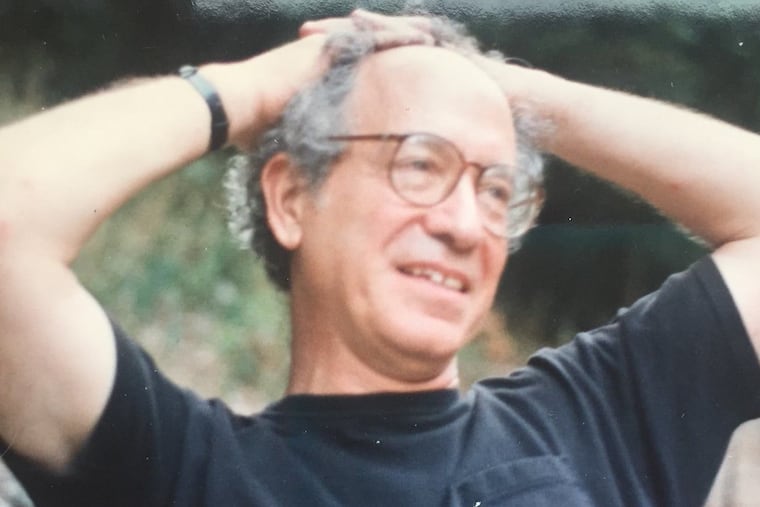Craig Eisendrath, cultural leader, foreign-policy expert, and ‘Renaissance man,’ dies at 85
Under his leadership, the Pennsylvania Humanities Council became a dynamic agency that ranked among the most successful in the country.

Craig Eisendrath, 85, of Philadelphia, the former executive director of the Pennsylvania Humanities Council, a veteran and decorated Foreign Service officer, a college educator and government administrator, and an author and lecturer, died Saturday, Feb. 20, of amyotrophic lateral sclerosis at home.
Mr. Eisendrath was born in Chicago and worked in government and academia before settling in Philadelphia in 1980 at the state humanities council. There, for 13 years, he awarded grants, organized conferences and speaker’s programs, produced critically acclaimed exhibits, and published material about history, literature, and other topics that reached millions of people in Pennsylvania and across the nation.
Under Mr. Eisendrath’s leadership, the nonprofit, private Pennsylvania Humanities Council became a dynamic agency that ranked among the most successful in the country. Lynne Cheney, the chair of the National Endowment for the Humanities from 1986-93, publicly noted its achievements, including an impressive series of exhibits and programs connected to the 1987 bicentennial celebration of the adoption of the U.S. Constitution.
“He loved people and their stories,” said his wife, Roberta Spivek. “He loved history and civics. Most of all, he had a joy for life. He was a Renaissance man.”
After leaving the council in 1993, Mr. Eisendrath, a prolific writer throughout his adult life, worked on his fiction; wrote plays; and focused on his 2011 book, Beyond Permanence: The Great Ideas of the West. He also served at the Center for International Policy in Washington, was cofounder of the Philadelphia-based Project on Nuclear Awareness, and was central to the founding of the National Constitution Center in 2000.
“Craig was a global citizen par excellence,” Christiaan Morssink, the executive director of the United Nations Association Chapter of Greater Philadelphia, wrote in a tribute. “Craig has infused [the United Nations Association of the United States] with a blend of scientific rigor, creative artistry, and social activism that makes our work enduring, hopeful in trend and strong in on-the-spot advocacy.”
Born on Jan. 21, 1936, Mr. Eisendrath earned undergraduate college degrees from the University of Chicago and the Georgetown University School of Foreign Service. He served in the Army from 1956-58 and was a Foreign Service officer in Italy and stateside from 1958-65. He won a Meritorious Service Medal for his work on the 1967 Outer Space Treaty.
After the foreign service, he got a doctoral degree from Harvard University in the history of American civilization, and dived into academia. He taught at several universities, including Temple, Harvard, Northeastern, and MIT, was a college administrator at several others, and worked for the National Endowment for the Humanities in long-term educational development.
He lectured all over the world on a plethora of topics, and wrote numerous articles and books on foreign policy and Western thought. His books, in addition to Beyond Permanence, included Crisis Game: A Novel of the Cold War (2002); War in Heaven: The Arms Race in Outer Space, with Helen Caldicott (2007); and The Unifying Moment (2014).
He also wrote poetry and well-received plays, including The Angel of History, which he wrote with Spivek and saw performed at the Hedgerow Theater in Rose Valley. He was a swimmer, enjoyed birding in Cape May, and losing himself in nature. He loved to be around animals.
He was married to Betsy Eisendrath and later, to Polly Young-Eisendrath. Both marriages ended in divorce. He met Spivek at a conference at St. Joseph’s University in 1984. Both were writers and socially and politically active, and they bonded quickly. They were married for 29 years.
“He knew a lot about a lot, and he had the ability and passion to talk about it in a way people could understand,” his wife said.
In 2008, Mr. Eisendrath began showing signs of ALS, and he suffered a crisis in 2010. He had a tracheostomy and soon lost his voice. In his later years, he wrote painstakingly and used eye movements to communicate.
“He showed courage and fortitude,” Spivek said. “He remained a mentor and teacher to many. I called him my Eagle Scout.”
In addition to his wife and ex-wives, Mr. Eisendrath is survived by his son, Aaron; daughter Rachel; stepson Colin Rickert; stepdaughter Amber Rickert; two grandsons; a sister; and other relatives. A sister died earlier.
Donations in his name may be made to the ALS Association Greater Philadelphia Chapter, 321 Norristown Rd., Suite 260, Ambler, Pa., 19002.